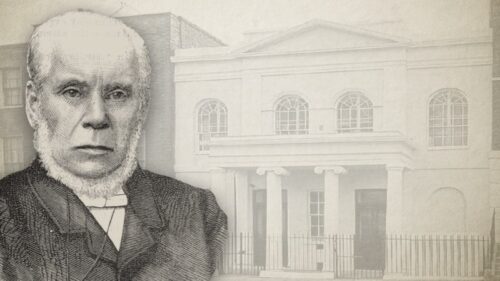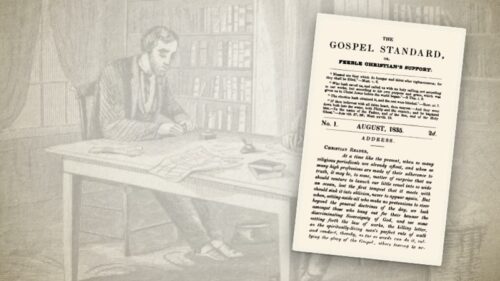-
The Letter Of Paul To Titus
I believe the letter of Paul to Titus was written in the year 67AD, making it the twelfth of his fourteen epistles. The chart below provides a bird’s-eye view of the chronological order for the books of the New Testament. John Gill, “Commentary On The New Testament Scriptures”: “Titus, to whom this epistle is inscribed, was a Greek, an uncircumcised Gentile, and so remained; nor did the apostle circumcise him, as he did Timothy, when he became his companion; nor did the apostles at Jerusalem oblige him to be circumcised, when Paul took him with Barnabas along with him thither, (Galatians 2:1,3). He was a man of great grace, and large gifts, and very dear to the apostle: he calls him his brother, his partner,…
-
The Letter Of Paul To The Hebrews
I believe the letter of Paul to the Hebrews was written in the year 67AD, making it the thirteenth of his fourteen epistles. The chart below provides a bird’s-eye view of the chronological order for the books of the New Testament. John Gill, “Commentary On The New Testament Scriptures”: “That this epistle was written very early appears from hence, that it was imitated by Clement of Rome, in his epistle to the Corinthians, who took whole sentences out of it; and therefore it could not be a new work, as Eusebius observes: it has been denied to be authentic by some heretics, as the Marcionites and Arians, but has been generally received as such by the orthodox: some indeed doubted of it, because it was…
-
The Second Letter Of Paul To Timothy
I believe the second letter of Paul to Timothy was written in the year 67AD, making it the last of his fourteen epistles. The chart below provides a bird’s-eye view of the chronological order for the books of the New Testament. John Gill, “Commentary On The New Testament Scriptures”: “That this epistle was written to Timothy, while he was at Ephesus, where the apostle in his former epistle had desired him to stay, is evident from his making mention of some persons in it, who were Ephesians; as Onesiphorus, whom he commends, and Alexander the coppersmith, of whom he complains: and that this epistle was written by the apostle, when he was at Rome, is no less evident; for he expressly calls himself a prisoner,…
-
The First Letter Of Peter To The Churches Of Pontus, Galatia, Cappadocia, Asia, and Bithynia
I believe the first letter of Peter, addressed to the churches at Pontus, Galatia, Cappadocia, Asia, and Bithynia, was written in the year 64 AD, making it the twelfth letter in point of chronological order of the New Testament epistles. John Gill, “Commentary On The New Testament Scriptures”: ”That Simon, called Peter, an apostle of Jesus Christ, was the writer of this epistle, is not questioned by any; nor was the genuineness and authenticity of it ever made a doubt of. Eusebius says, that it had been confessed by all, and received without controversy; and that the ancients, without any scruple, had made use of it in their writings. It is called his “general”, or catholic epistle, because it was not written to any particular…
-
The Second Letter Of Peter To The Churches Of Pontus, Galatia, Cappadocia, Asia, and Bithynia
I believe this gospel record was written by John Mark, the nephew of Barnabas, son in the faith to the Apostle Peter and companion of Paul during his first evangelistic campaign. It is one of four inspired narratives recounting the earthly ministry of the Lord Jesus Christ. John Gill, “Commentary On The New Testament Scriptures”: “This is the title of the book, the subject of which is the Gospel; a joyful account of the ministry, miracles, actions, and sufferings of Christ: the writer of it was not one of the twelve apostles, but an evangelist; the same with John Mark, or John, whose surname was Mark: John was his Hebrew name, and Mark his Gentile name, (Acts 12:12,25), and was Barnabas's sister's son, (Colossians 4:10),…
-
The Gospel According To Mark
I believe this gospel record was written by John Mark, the nephew of Barnabas, son in the faith to the Apostle Peter and companion of Paul during his first evangelistic campaign. It is one of four inspired narratives recounting the earthly ministry of the Lord Jesus Christ. John Gill, “Commentary On The New Testament Scriptures”: “This is the title of the book, the subject of which is the Gospel; a joyful account of the ministry, miracles, actions, and sufferings of Christ: the writer of it was not one of the twelve apostles, but an evangelist; the same with John Mark, or John, whose surname was Mark: John was his Hebrew name, and Mark his Gentile name, (Acts 12:12,25), and was Barnabas's sister's son, (Colossians 4:10),…







